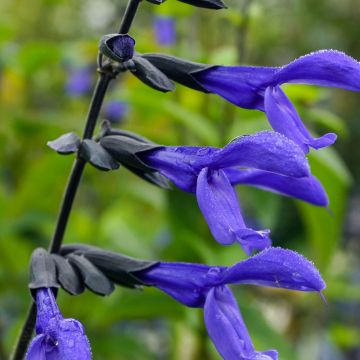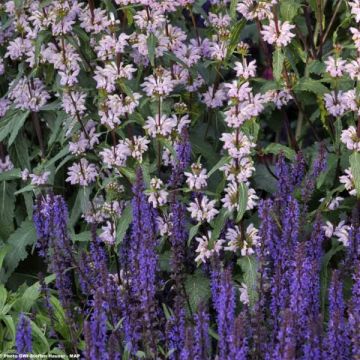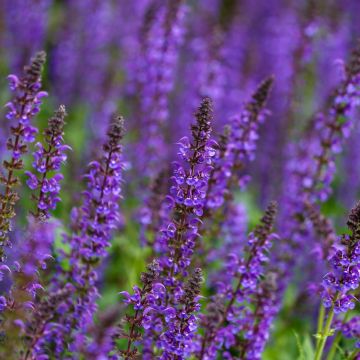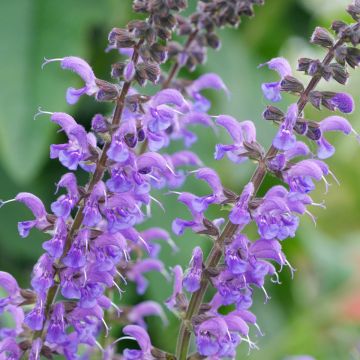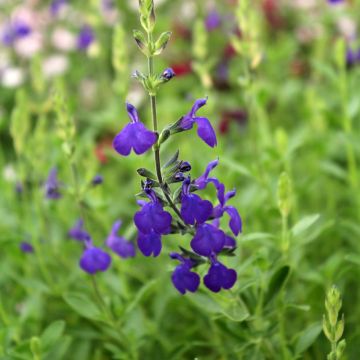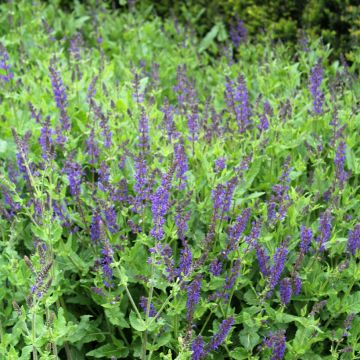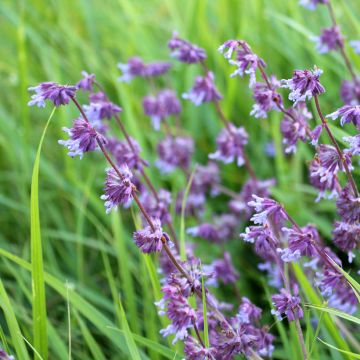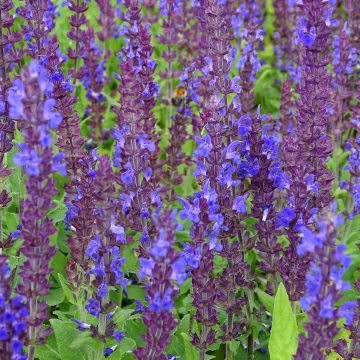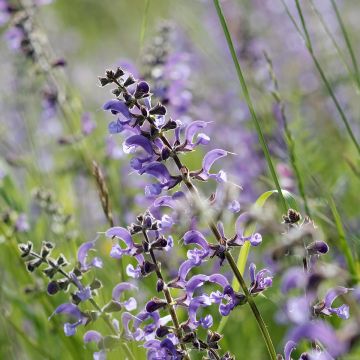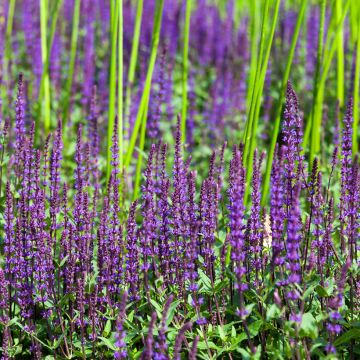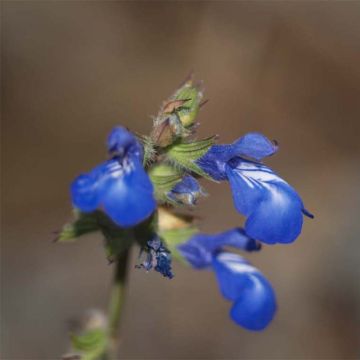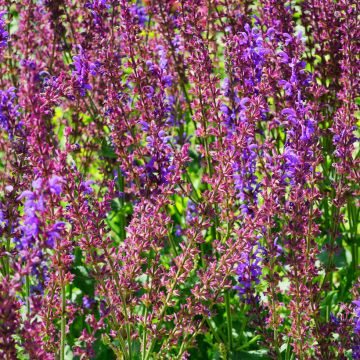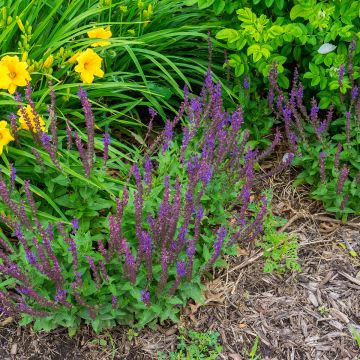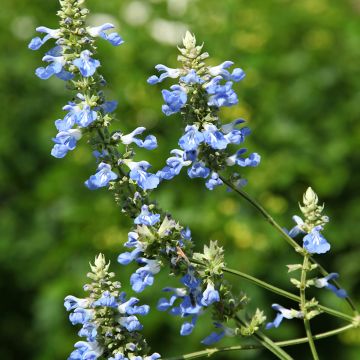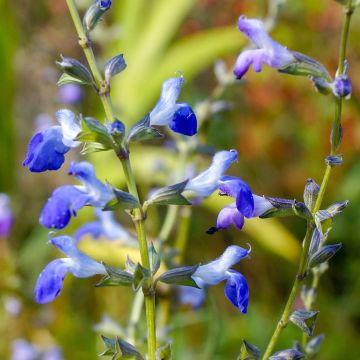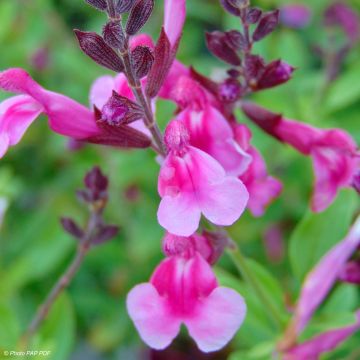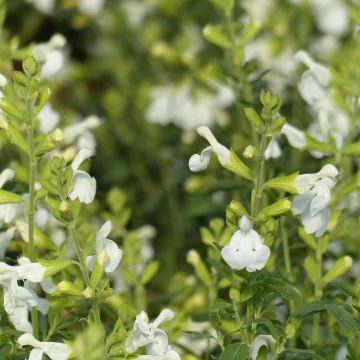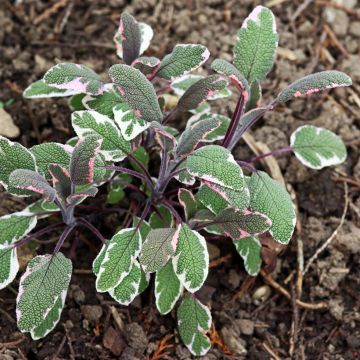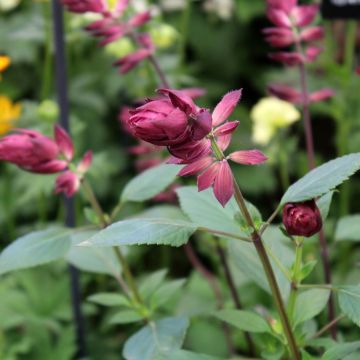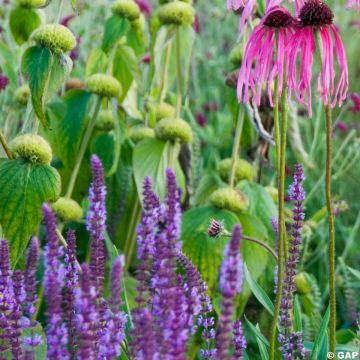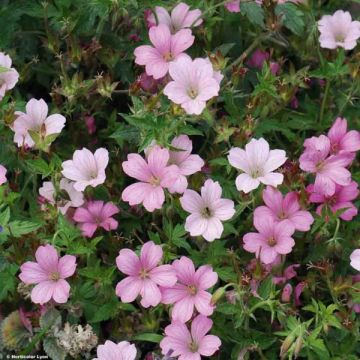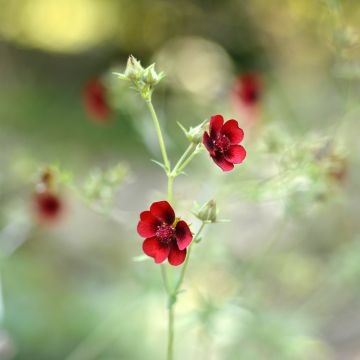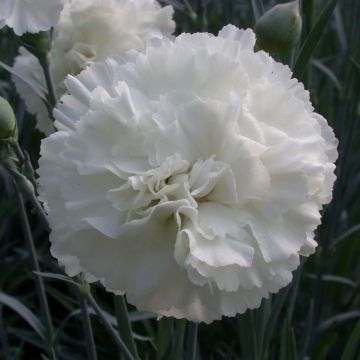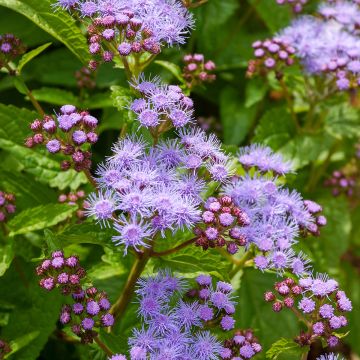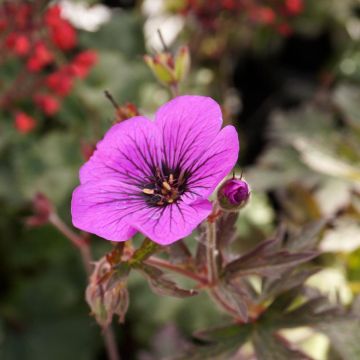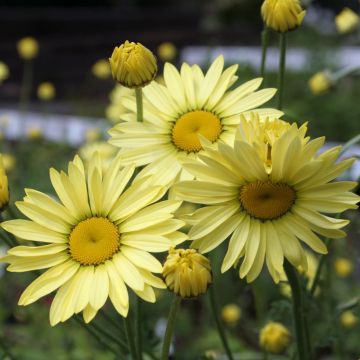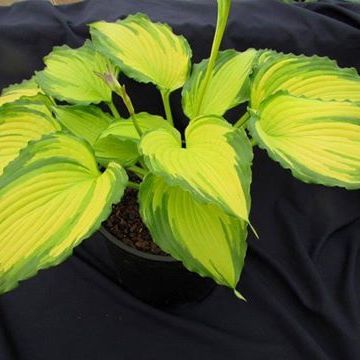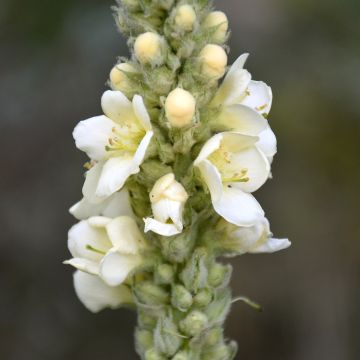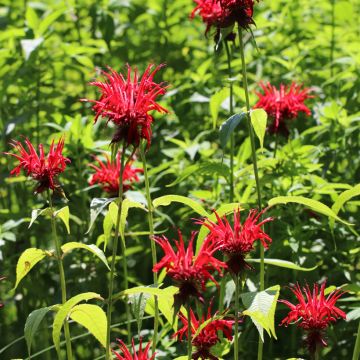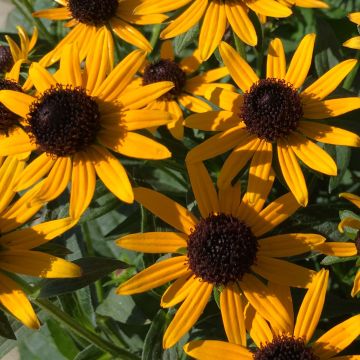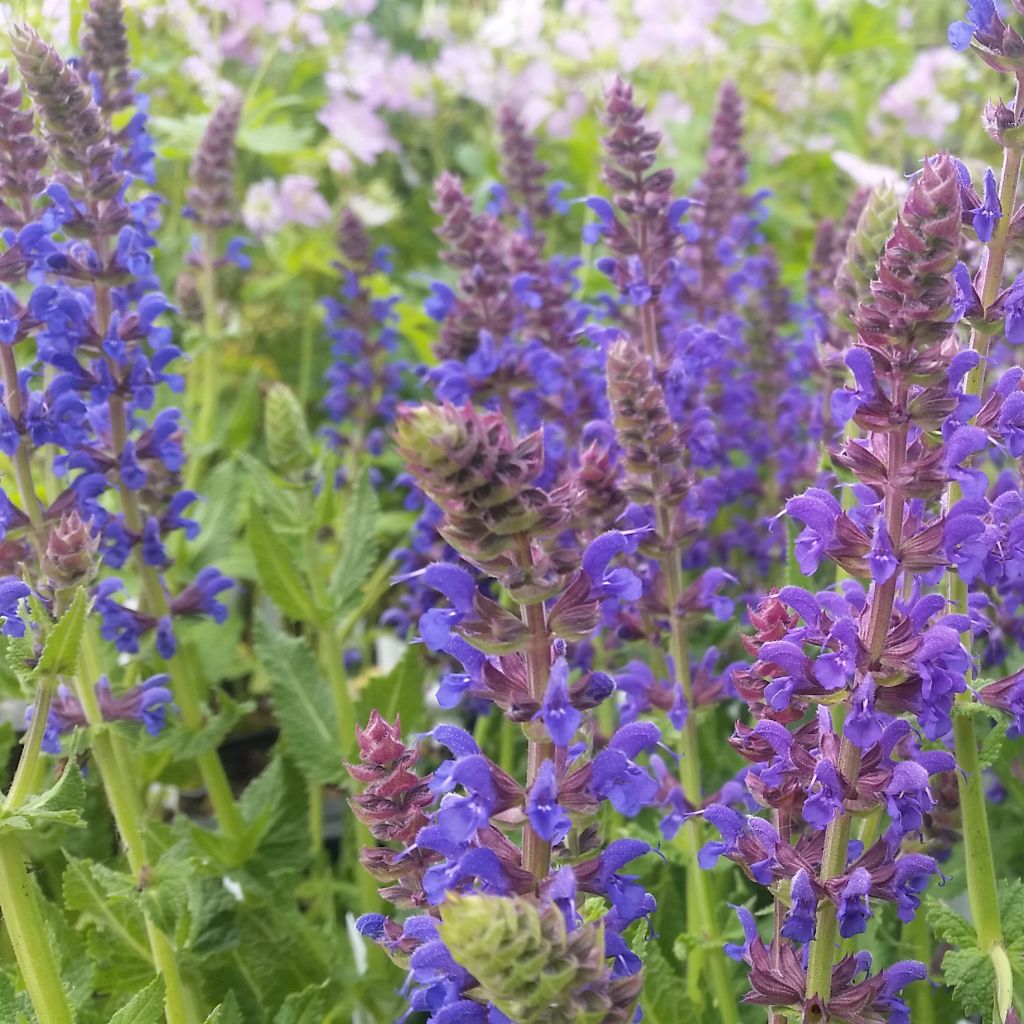

Salvia nemorosa April Night - Woodland Sage
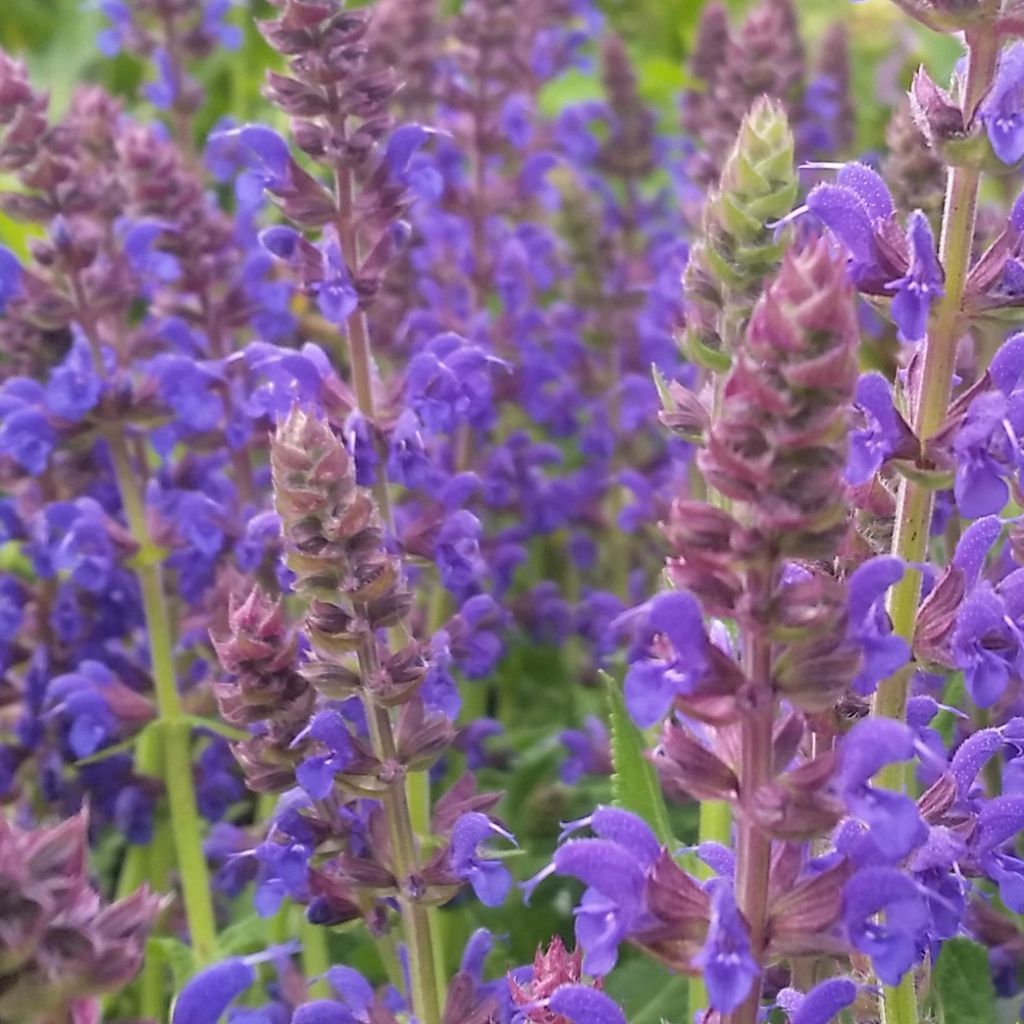

Salvia nemorosa April Night - Woodland Sage
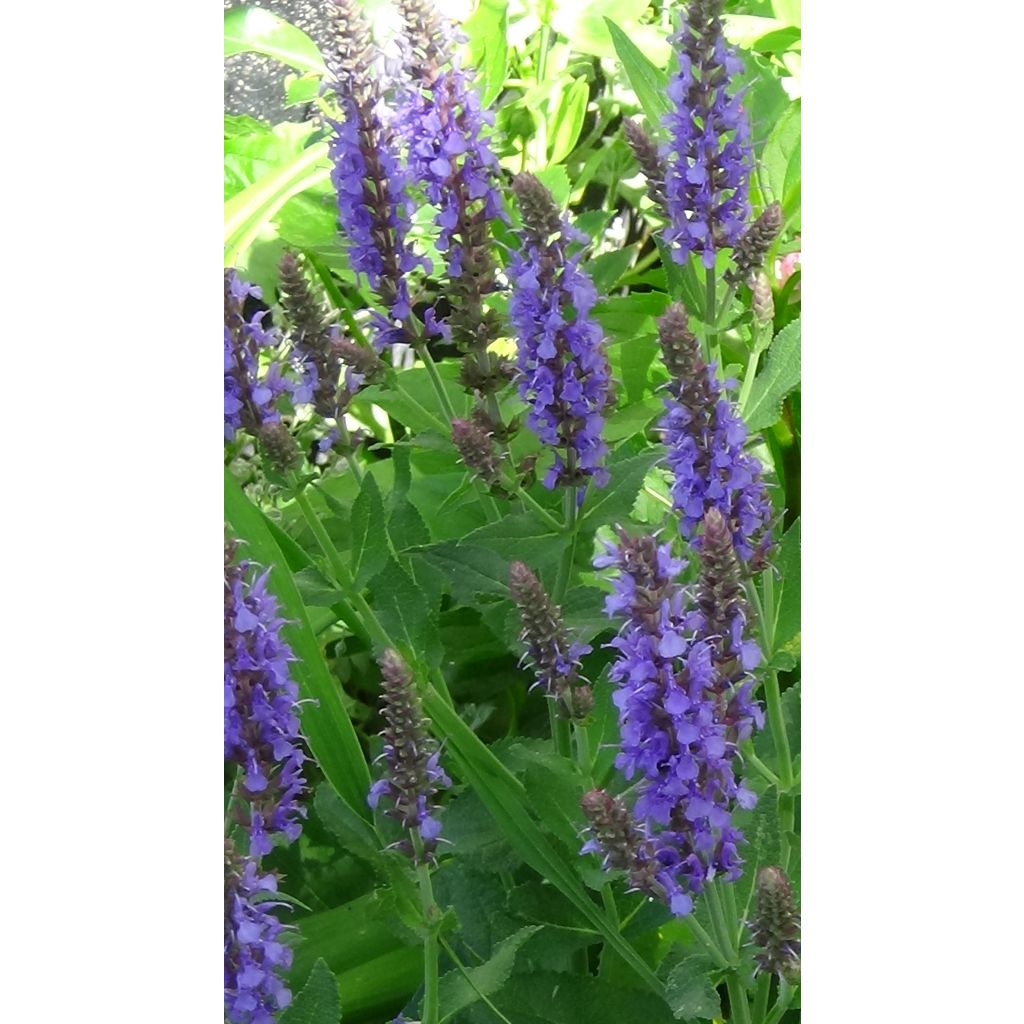

Salvia nemorosa April Night - Woodland Sage
Salvia nemorosa April Night - Woodland Sage
Salvia nemorosa April Night
Woodland Sage, Balkan Clary
Why not try an alternative variety in stock?
View all →This plant carries a 12 months recovery warranty
More information
We guarantee the quality of our plants for a full growing cycle, and will replace at our expense any plant that fails to recover under normal climatic and planting conditions.
From €5.90 for pickup delivery and €6.90 for home delivery
Express home delivery from €8.90.
Delivery to Corse prohibited: UE law prohibits the import of this plant from mainland France to Corse as part of the fight against Xylella fastidiosa. Please accept our sincere apologies.
More information

Does this plant fit my garden?
Set up your Plantfit profile →
Description
Salvia nemorosa 'Sallyrosa April Night' is a variety of sage that blooms one month earlier than others, usually in May, with bright blue-violet spikes of small flowers that continue to bloom until the middle of summer if you regularly remove faded flowers. Very floriferous, it also has a compact and branched habit and robust health. All these qualities make it an excellent candidate for ornamental patios and balconies, but also perfect for low-maintenance flower beds. Easy to grow, it is also one of the hardiest sages, and as such a fantastic garden perennial that will not disappoint.
Salvia nemorosa is a perennial of the family Lamiaceae. It is a species native to central Europe and western Asia. 'April Night' is one of its many cultivars, recently obtained in Israel. Its adult size will not exceed 35 cm in height and 35-40 cm (14-16in) in width. This perennial develops from a prostrate rosette of oval, rough, dark green leaves with toothed edges, aromatic when crushed. It has a bushy, highly branched and sturdy habit. Flowering begins in spring and continues until July-August, depending on the climate, in the form of long terminal clusters composed of numerous small flowers, 0.5 to 1 cm (1in) of intense blue-violet colour, with purple bracts. The beautiful compact spikes with nectar-rich flowers succeed each other throughout the summer and delight butterflies. The base of the stems is often reddish.
This sage has the advantage of blooming earlier than others, allowing for staggered flowering when combined with other varieties. It withstands everything, even wind, cold, heat, and poor soils. It will be superb in the company of pink flowering plants like the late flowering tulip 'Angélique', white flowers like Chamaemelum nobile 'Plenum', a red rose for a strong contrast, or with the grey foliage of Artemisias in dry soil, or purple foliage like that of Physocarpus opulifolius Lady in Red in moister soil. It also pairs well with light pink flowering plants like Verbena 'Rosea', which will dominate it in height, the shrubby mallow 'Barnsley' or the Penstemon 'Evelyn'. It is also perfect for adding to flower beds and borders with Perovskia, Lychnis coronaria Oculata, or Coronillas.
With over 900 species of annuals, perennials, and softwood shrubs spread all over the globe, except for very cold regions and tropical forests, the Salvia genus is the largest in the Lamiaceae family. The name Salvia, which dates back to Roman times, derives from the Latin salvus meaning 'healthy' alluding to the medicinal virtues of sage.
Report an error about the product description
Salvia nemorosa April Night - Woodland Sage in pictures
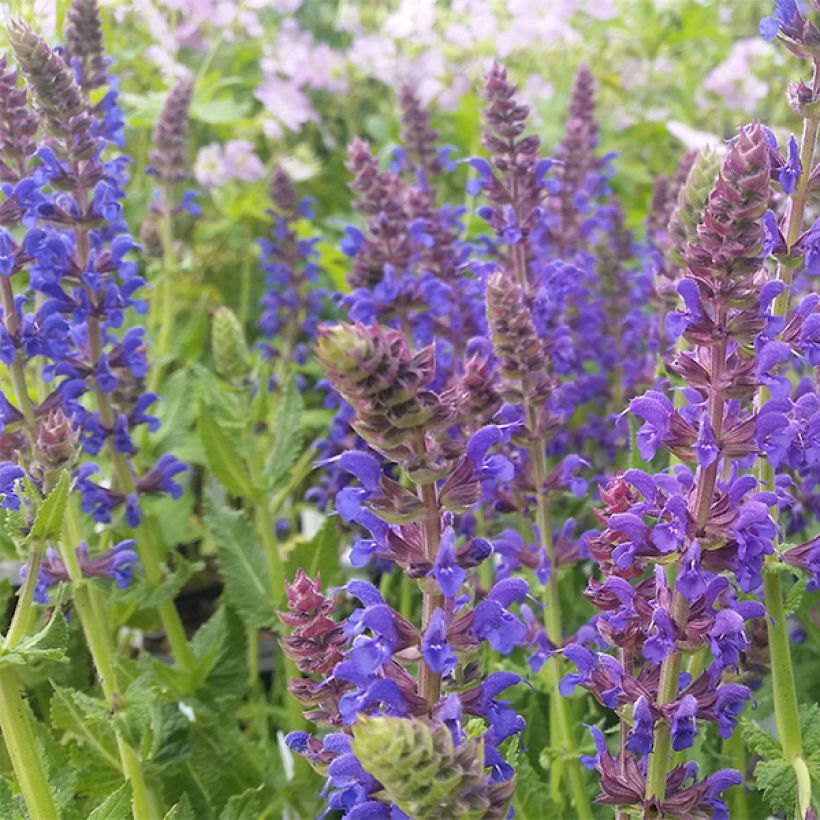

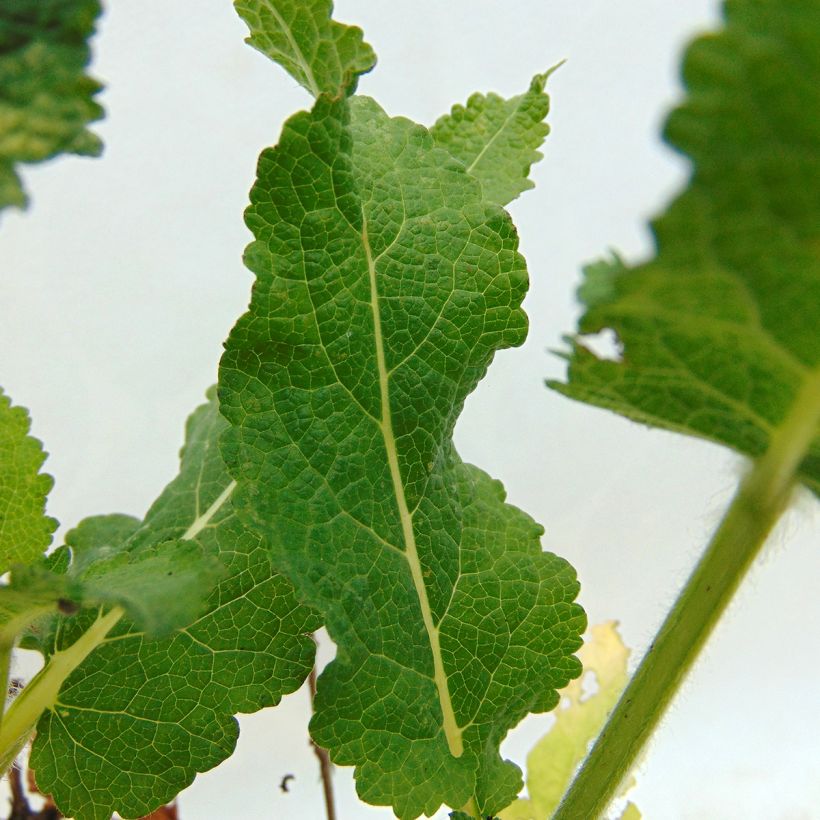

Flowering
Foliage
Plant habit
Botanical data
Salvia
nemorosa
April Night
Lamiaceae
Woodland Sage, Balkan Clary
Cultivar or hybrid
Other Salvia - Sage
Planting and care
Salvia nemorosa 'April Night' can be planted from October to March, outside the period of frosts, with a spacing of 40 cm (16in) in a well-drained, even ston soil, in full sun. This plant tolerates some drought. It does not appreciate heavy and waterlogged soils in winter, which can harm its hardiness. In winter, add a light compost of manure or other organic material. Prune it to 20 cm (8in) in late winter before new vegetation appears in spring. Beware of gastropods that can attack young shoots. To preserve the vitality of the sage, it is good to divide the plant after 3 years. Plant the new plants in well-worked soil: to improve slightly poor soil, mix in some horticultural compost.
Planting period
Intended location
Care
-
, onOrder confirmed
Reply from on Promesse de fleurs
Summer flowering perennials
Haven't found what you were looking for?
Hardiness is the lowest winter temperature a plant can endure without suffering serious damage or even dying. However, hardiness is affected by location (a sheltered area, such as a patio), protection (winter cover) and soil type (hardiness is improved by well-drained soil).

Photo Sharing Terms & Conditions
In order to encourage gardeners to interact and share their experiences, Promesse de fleurs offers various media enabling content to be uploaded onto its Site - in particular via the ‘Photo sharing’ module.
The User agrees to refrain from:
- Posting any content that is illegal, prejudicial, insulting, racist, inciteful to hatred, revisionist, contrary to public decency, that infringes on privacy or on the privacy rights of third parties, in particular the publicity rights of persons and goods, intellectual property rights, or the right to privacy.
- Submitting content on behalf of a third party;
- Impersonate the identity of a third party and/or publish any personal information about a third party;
In general, the User undertakes to refrain from any unethical behaviour.
All Content (in particular text, comments, files, images, photos, videos, creative works, etc.), which may be subject to property or intellectual property rights, image or other private rights, shall remain the property of the User, subject to the limited rights granted by the terms of the licence granted by Promesse de fleurs as stated below. Users are at liberty to publish or not to publish such Content on the Site, notably via the ‘Photo Sharing’ facility, and accept that this Content shall be made public and freely accessible, notably on the Internet.
Users further acknowledge, undertake to have ,and guarantee that they hold all necessary rights and permissions to publish such material on the Site, in particular with regard to the legislation in force pertaining to any privacy, property, intellectual property, image, or contractual rights, or rights of any other nature. By publishing such Content on the Site, Users acknowledge accepting full liability as publishers of the Content within the meaning of the law, and grant Promesse de fleurs, free of charge, an inclusive, worldwide licence for the said Content for the entire duration of its publication, including all reproduction, representation, up/downloading, displaying, performing, transmission, and storage rights.
Users also grant permission for their name to be linked to the Content and accept that this link may not always be made available.
By engaging in posting material, Users consent to their Content becoming automatically accessible on the Internet, in particular on other sites and/or blogs and/or web pages of the Promesse de fleurs site, including in particular social pages and the Promesse de fleurs catalogue.
Users may secure the removal of entrusted content free of charge by issuing a simple request via our contact form.
The flowering period indicated on our website applies to countries and regions located in USDA zone 8 (France, the United Kingdom, Ireland, the Netherlands, etc.)
It will vary according to where you live:
- In zones 9 to 10 (Italy, Spain, Greece, etc.), flowering will occur about 2 to 4 weeks earlier.
- In zones 6 to 7 (Germany, Poland, Slovenia, and lower mountainous regions), flowering will be delayed by 2 to 3 weeks.
- In zone 5 (Central Europe, Scandinavia), blooming will be delayed by 3 to 5 weeks.
In temperate climates, pruning of spring-flowering shrubs (forsythia, spireas, etc.) should be done just after flowering.
Pruning of summer-flowering shrubs (Indian Lilac, Perovskia, etc.) can be done in winter or spring.
In cold regions as well as with frost-sensitive plants, avoid pruning too early when severe frosts may still occur.
The planting period indicated on our website applies to countries and regions located in USDA zone 8 (France, United Kingdom, Ireland, Netherlands).
It will vary according to where you live:
- In Mediterranean zones (Marseille, Madrid, Milan, etc.), autumn and winter are the best planting periods.
- In continental zones (Strasbourg, Munich, Vienna, etc.), delay planting by 2 to 3 weeks in spring and bring it forward by 2 to 4 weeks in autumn.
- In mountainous regions (the Alps, Pyrenees, Carpathians, etc.), it is best to plant in late spring (May-June) or late summer (August-September).
The harvesting period indicated on our website applies to countries and regions in USDA zone 8 (France, England, Ireland, the Netherlands).
In colder areas (Scandinavia, Poland, Austria...) fruit and vegetable harvests are likely to be delayed by 3-4 weeks.
In warmer areas (Italy, Spain, Greece, etc.), harvesting will probably take place earlier, depending on weather conditions.
The sowing periods indicated on our website apply to countries and regions within USDA Zone 8 (France, UK, Ireland, Netherlands).
In colder areas (Scandinavia, Poland, Austria...), delay any outdoor sowing by 3-4 weeks, or sow under glass.
In warmer climes (Italy, Spain, Greece, etc.), bring outdoor sowing forward by a few weeks.

































